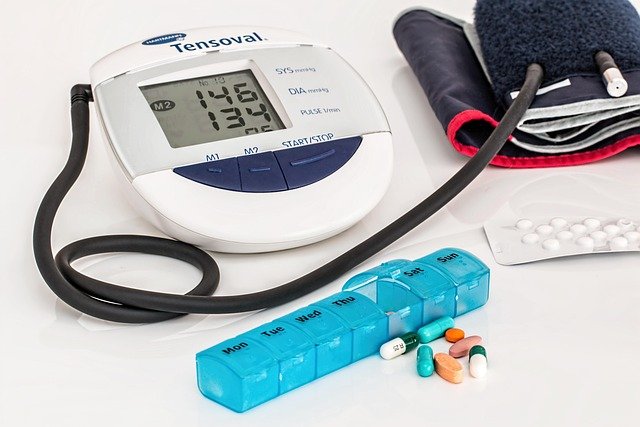Kidney Disease Care: Key Treatments and Management
Explore practical guidance on managing kidney disease, including medication strategies, diet and lifestyle changes, dialysis options, and transplant considerations. Learn how working with a nephrologist and care team helps protect kidney function, control symptoms, and plan for advanced therapies like dialysis or transplantation. Discover cost considerations and insurance factors to prepare financially and medically.

Kidney disease requires a tailored approach that combines medical therapies, lifestyle adjustments, and coordinated care. Whether the goal is slowing progression, managing complications, or preparing for advanced treatments, understanding the available options and partnering with the right healthcare team helps people live better and maintain function for as long as possible.
Medical management and treatment options
Treatment depends on the cause of kidney impairment and how far the disease has progressed. Medications are commonly used to control contributing conditions and reduce further kidney damage. For example, clinicians frequently prescribe blood pressure medicines such as ACE inhibitors or ARBs to lower pressure inside the kidneys and limit protein loss in the urine. For people with diabetes, strict glucose control through oral drugs or insulin is essential to slow diabetic kidney damage.
In addition to drugs, doctors monitor kidney function with blood and urine tests, tracking measures like creatinine, estimated glomerular filtration rate (eGFR), and urine albumin. Where excessive protein is present, medications and tighter blood pressure targets can help reduce progression. Physicians may also treat complications such as anemia, bone-mineral disorders, and electrolyte imbalances with targeted therapies.
Dietary adjustments are a core component of treatment. Nutrition advice is individualized but often includes limiting sodium to lower blood pressure, moderating protein intake to reduce kidney workload, and adjusting potassium and phosphorus depending on lab results. A renal dietitian can create an eating plan that protects kidneys while ensuring adequate nutrition.
Lifestyle changes and preventive measures
Lifestyle choices significantly influence how kidney disease progresses. Patients are advised to maintain a healthy weight, engage in regular physical activity as tolerated, and avoid tobacco use. Smoking cessation improves overall cardiovascular health and reduces the risk of further kidney injury.
Fluid management is another important factor. Some patients need to limit fluid intake to avoid swelling and hypertension, while others are encouraged to maintain adequate hydration. Alcohol intake should be moderated and nonsteroidal anti-inflammatory drugs (NSAIDs) should generally be avoided unless approved by a clinician, because these medications can worsen kidney function.
Preventive care such as vaccination, tight control of blood sugar, and routine screening for urinary protein or declining eGFR are practical steps to catch deterioration early. Education about recognizing symptoms like worsening edema, shortness of breath, or changes in urine output can prompt timely medical review.
Advanced treatment options for kidney failure
When kidney function declines to the point where conservative management is insufficient, renal replacement therapies become necessary. Dialysis removes waste products and excess fluid from the blood when kidneys can no longer do so reliably.
There are two main dialysis approaches. Hemodialysis typically takes place in a center several times a week or at home with training; it filters blood through a machine and requires a vascular access. Peritoneal dialysis uses the lining of the abdomen as a filter; fluid is infused into the abdominal cavity and later drained, and it can often be done at home, sometimes overnight. Each modality has advantages and trade-offs in terms of lifestyle impact, infection risks, and scheduling.
Kidney transplantation is another option for eligible candidates and often offers better long-term quality of life compared with long-term dialysis. Transplants may come from living or deceased donors and require lifelong immunosuppressive medication to prevent organ rejection. The decision to pursue transplantation involves medical evaluation, psychosocial assessment, and coordination with a transplant center.
Coordinating care with your healthcare team
Effective management relies on a multidisciplinary team. A nephrologist leads kidney-specific care, while the primary care physician helps manage comorbid conditions. Depending on needs, other team members can include an endocrinologist, cardiologist, renal dietitian, pharmacist, social worker, and transplant coordinator.
Open communication and regular follow-up appointments are essential. Keep a record of medications, lab results, and symptoms, and discuss any side effects or new concerns promptly. Shared decision-making about treatment choices lets patients weigh the benefits and lifestyle implications of different options.
Treatment costs and insurance coverage
Below is a summary of typical treatment cost ranges and common insurance coverage patterns. Individual costs vary by provider, region, and specific patient needs, so use these figures as general guidance.
| Treatment Type | Average Cost Range | Typical Insurance Coverage |
|---|---|---|
| Hemodialysis | $72,000-$89,000/year | 80-100% with Medicare |
| Peritoneal Dialysis | $53,000-$71,000/year | 80-100% with Medicare |
| Kidney Transplant | $260,000-$400,000 | 80-100% with insurance |
Prices, rates, or cost estimates mentioned in this article are based on the latest available information but may change over time. Independent research is advised before making financial decisions.
Financing and coverage depend on insurance plans, eligibility for public programs such as Medicare, and whether additional outpatient or inpatient care is required. Social workers and financial counselors at hospitals or dialysis centers can help explore coverage options, charitable programs, and payment plans.
Living with kidney disease involves ongoing attention to medications, diet, and monitoring, but many people maintain active, fulfilling lives with proper care. Early detection, adherence to treatment, and close collaboration with a healthcare team are key to slowing progression and managing complications.
This article is for informational purposes only and should not be considered medical advice. Please consult a qualified healthcare professional for personalized guidance and treatment.






